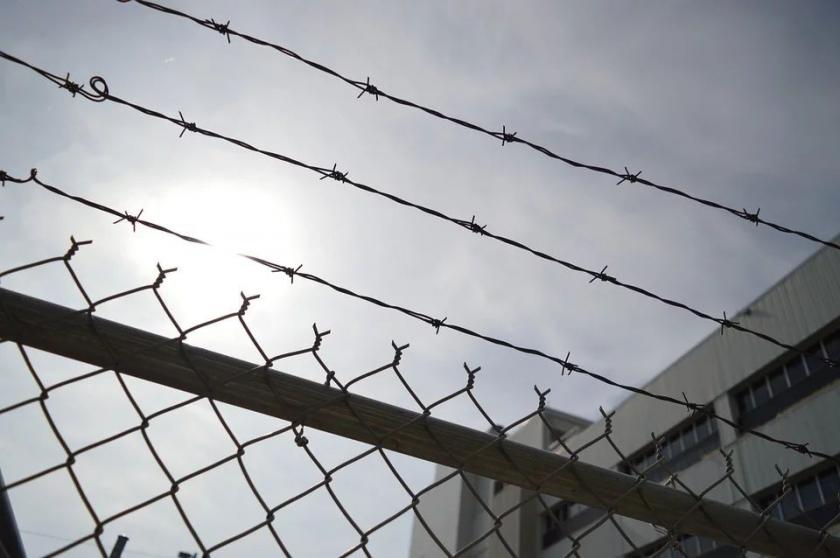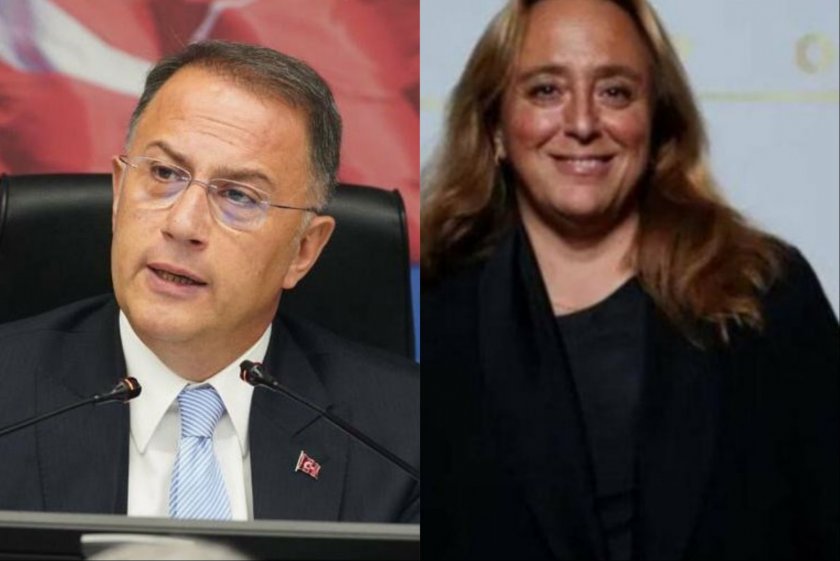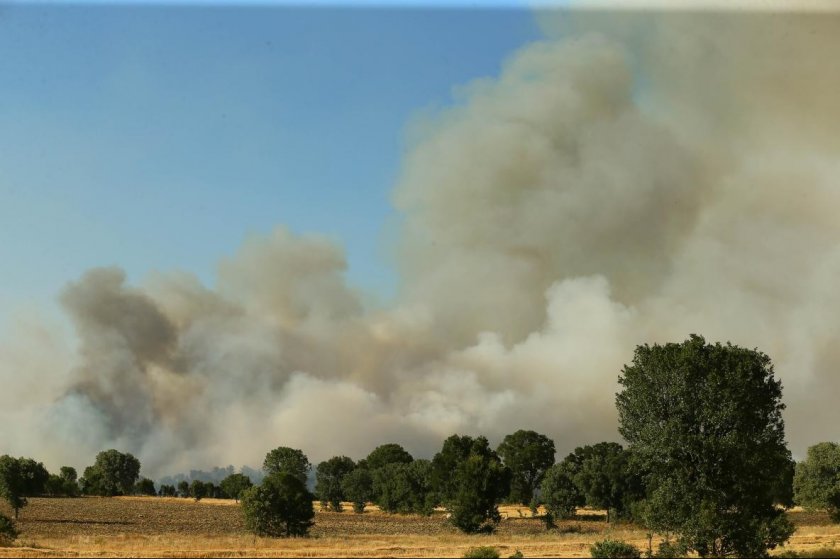Syrian refugees do not favour return: Syria is still an unsafe region
Furniture workshop worker Ziya, whom we spoke to in Ankara in these days in which talk of return is in the air, says he does not want to return to his country until the war ends.

Fotoğraf: Evrensel
Buse VURDU
Ankara
Furniture workshop worker Ziya, whom we spoke to in Ankara in these days in which talk of return is in the air, says he does not want to return to his country until the war ends, commenting, “We have seen what both Assad, and the FSA as well as ISIS have done to people. The war is still continuing. I don’t trust any of them.” Chair of the Research Centre on Asylum and Migration, Metin Çorabatır, in turn, says return must be conducted in a manner that is voluntary, safe and conducive to human dignity.
As per Turkey’s description, districts and villages will be set up in the region and initially one to two million Syrians, and later three million, will be settled in the region as houses are built. Following the ending of the operation, debate about the return of the Syrians has intensified. Most recently, Amnesty International published a report about Turkey forcibly returning Syrian refugees to regions where war is continuing months before the operation. Even if the Foreign Ministry has denied the claims contained in the report, there has been no end to the debate about return. So, what does return signify for Syrian refugees? What are the international criteria concerning return? Can these criteria be met under the prevailing conditions? I discussed the answers to these questions with Chair of the Research Centre on Asylum and Migration, Metin Çorabatır, and Syrian refugee worker Ziya.
NO THOUGHTS OF LEAVING UNTIL THE WAR ENDS
Ziya is a 27-year-old Syrian refugee. He fled war five years ago at the age of 22 and came to Turkey. He started work at a furniture workshop in the Ankara Furniture Estate to enable him to earn his living. Two years after his arrival, he married his wife who, like him, is from Aleppo. They now have a one-and-a-half-year-old child, too. From Ziya’s family, only his father is alive. And he lives in Syria. Ziya tries to provide for his family and his septuagenarian father out of his 550-lira weekly wage.
I meet up with Ziya at the workshop where he works to discuss talk of sending Syrian refugees back. Stating that during the war he fled to Turkey, as he puts it, “Not to be an Assad soldier and not to bear arms,” Ziya says he does not want to go to the safe zone. Having fled the war, he speaks of being detained or taken into the army if he returns to Syria. Saying, “We have seen what both Assad, and the FSA as well as ISIS have done to people. The war is still continuing. I don’t trust any of them. I don’t want my family to come to harm,” Ziya states that he will not leave Turkey until the war ends in Syria.
“THE WAR WON’T END IN THE COUNTRY WITHOUT THE US AND RUSSIA GOING”
Ziya and his family live in a squatter settlement in Önder Quarter attached to Altındağ. No sooner has one weekly wage come than it goes in rent and bills. Explaining that it is quite tough for a refugee worker family to get by, Ziya says, “Who would want to live like this? They call us ‘traitors’ for having fled the war. They don’t like us. And now they want to eject us. But it is not at all easy. We fled and came for our lives. I had not even thought about visiting Turkey when I was in Syria.” Ziya does not concur with Turkey entering Syrian territory, either. He says, “Other countries came and caused turmoil in our country. The war won’t end in Syria without the US and Russia going. I want everyone to be like brothers. The US, Russia and the others should get out of the country. Let Syrians decide for themselves.”
“RETURNS MUST BE VOLUNTARY, SAFE AND CONDUCIVE TO HUMAN DIGNITY”
Chair of the Research Centre on Asylum and Migration, Metin Çorabatır, stated that voluntary return was one of three permanent solutions for refugees along with integration into the countries where they have taken refuge and settlement in a third country. Pointing out that there were three UN-specified fundamental criteria concerning return, Çorabatır noted that return could be done on condition that it is voluntary, safe and conducive to human dignity. Indicating that debate about sending Syrian refugees back had been pursued by the ruling party and opposition parties without these criteria being taken into consideration, Çorabatır said, “There is at the current time no suitable and safe environment in Syria for the return of refugees.”
“ONLY 300,000 – 400,000 REFUGEES ARE FROM THAT AREA”
Pointing out that the area in which it was wished to settle refugees was not of a size with the capacity to accommodate several million refugees, Çorabatır said, “There are two towns and villages in the area currently being spoken of. If there really are refugees who come from these villages and towns and if they currently deem it to be safe, return, again on a voluntary basis, may come into consideration. But those regions will also always be regions of tension. They will not be places that will afford safety to refugees.” Pointing out that only 300,000 – 400,000 of the Syrian refugees in Turkey came from the north, Çorabatır said, “Just as there was an attempt to stabilize a portion of them here as best as possible, we’ve gone back to square one. Where to send them, who to send and how to choose them – these are all question marks. Perhaps initially if people who live there want to go back, they can go, but it is not appropriate to send somebody who comes from Aleppo there.”
“RISKS MUST BE EXPLAINED IN THE CASE OF VOLUNTARY RETURN”
According to Çorabatır, there are two kinds of return that can take place: spontaneous return and organized return. Refugees saying, “We’re returning come what may,” and going back to the place where their homes are is known as spontaneous return. In such cases, Turkey and the United Nations High Commissioner for Refugees must fill refugees in as to the risks they may encounter. By organized return, conversely, what is referred to is a situation that is safe, conducive to human dignity and envisages permanent settlement following the creation of a safe zone approved by the international community. Additionally, measures must be taken on return so that refugees will not be punished by the state or the dominant power in that area or by other people who remained there during the war on return to the country. Returns must be carried out in a planned fashion, mechanisms must be developed to enable the safety of return to be monitored by the UN and there must also be guarantees that monitoring and visits will be consented to by the power there.
(Translated by Tim DRAYTON)








Evrensel'i Takip Et